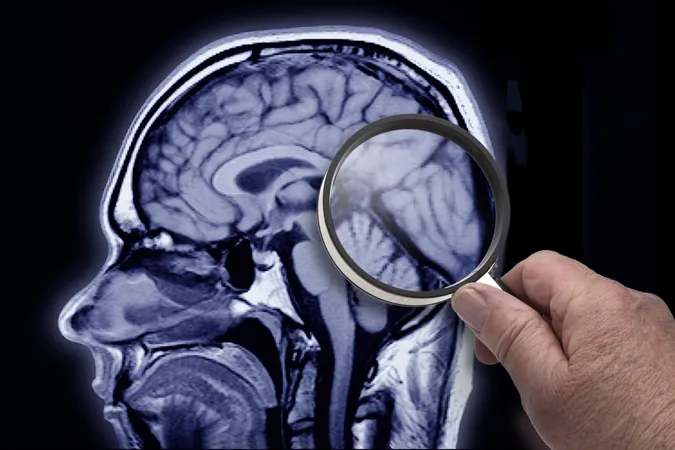
Revolutionary Tablet Test Unveils Early Signs of Alzheimer's Disease
2025-09-16
Author: Daniel
A groundbreaking self-administered cognition test on Android tablets is making waves in the realm of Alzheimer’s disease detection. The BioCog test offers a straightforward way for patients to assess their cognitive health and pinpoint those who may need further testing.
According to a study published in *Nature Medicine*, BioCog primarily evaluates memory but also gauges attention spans to get a comprehensive picture of cognitive abilities. Those who show signs of impairment will be directed towards more in-depth blood tests that check for biomarkers related to Alzheimer’s pathology.
Pontus Tideman, a PhD student from Lund University, highlights the significance: 'Most individuals experiencing memory loss will first approach their health center. This innovative digital test gives an early, objective insight into which patients are likely suffering from cognitive impairment linked to Alzheimer’s disease.'
The urgency of accurate, early Alzheimer’s diagnoses cannot be overstated. However, it’s crucial to note that not everyone with memory issues has the disease; symptoms may also be attributed to conditions like depression or fatigue.
Recent findings show that blood tests measuring phosphorylated tau at threonine 217 can effectively detect Alzheimer’s pathology, potentially transforming diagnostic procedures for patients exhibiting cognitive symptoms.
Nonetheless, these blood tests yield the best results for individuals with confirmed cognitive impairment. There's a significant risk of false positives among those experiencing merely subjective cognitive decline, which can lead to unnecessary anxiety about having Alzheimer’s.
Only patients with confirmed cognitive impairment are considered for newly launched Aβ-targeting immunotherapies, underscoring the importance of precise biomarker testing.
In response to the limitations of traditional in-clinic cognitive tests, the researchers developed the BioCog digital assessment tool designed for Android devices. The study compared results from two patient groups, one with 223 individuals displaying cognitive symptoms in a secondary care setting and another consisting of 403 from primary care.
In primary care, the BioCog test demonstrated an impressive 85% accuracy rate when using a single cutoff to define cognitive impairment—outshining the 73% accuracy of primary care physicians. Remarkably, accuracy soared to 90% when utilizing both upper and lower cutoffs.
This innovative digital test also eclipsed conventional paper-and-pencil assessments such as the Mini-Mental State Examination and Montreal Cognitive Assessment.
'What sets our BioCog test apart,’ explained Linda Karlsson, also a PhD student at Lund, 'is that it has been thoroughly evaluated in a primary care context, specifically targeting patients seeking help for their cognitive issues.'
Combining results from the BioCog test with blood sample outcomes further enhances the accuracy of diagnosing Alzheimer’s, paving the way for more effective interventions and better patient outcomes.



 Brasil (PT)
Brasil (PT)
 Canada (EN)
Canada (EN)
 Chile (ES)
Chile (ES)
 Česko (CS)
Česko (CS)
 대한민국 (KO)
대한민국 (KO)
 España (ES)
España (ES)
 France (FR)
France (FR)
 Hong Kong (EN)
Hong Kong (EN)
 Italia (IT)
Italia (IT)
 日本 (JA)
日本 (JA)
 Magyarország (HU)
Magyarország (HU)
 Norge (NO)
Norge (NO)
 Polska (PL)
Polska (PL)
 Schweiz (DE)
Schweiz (DE)
 Singapore (EN)
Singapore (EN)
 Sverige (SV)
Sverige (SV)
 Suomi (FI)
Suomi (FI)
 Türkiye (TR)
Türkiye (TR)
 الإمارات العربية المتحدة (AR)
الإمارات العربية المتحدة (AR)